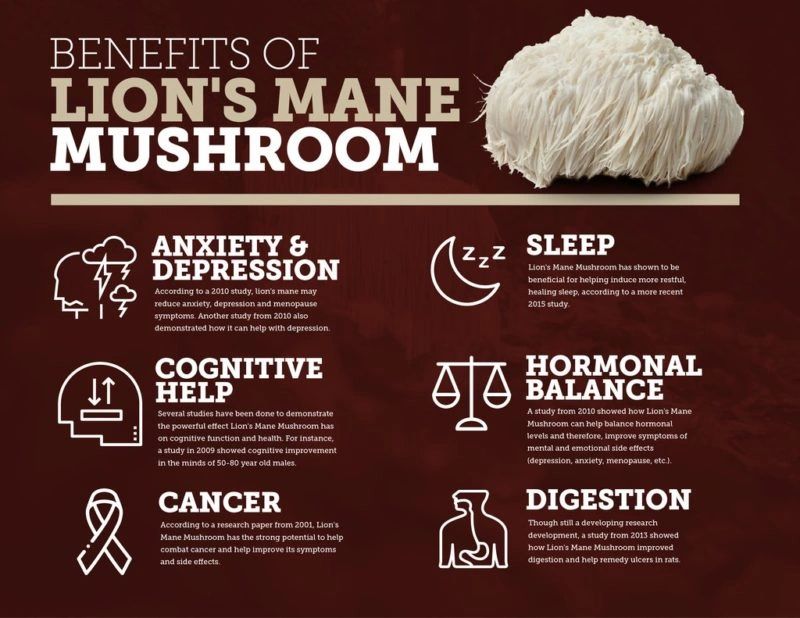The Potential of Lion's Mane Mushroom: From Cognitive Enhancement to Mood Elevation
Have you ever heard of a mushroom that not only tantalizes your taste buds but also holds the potential to boost your brainpower and uplift your mood? Enter Hericium erinaceus, more commonly known as lion's mane mushroom, a fascinating fungus with a myriad of health-promoting properties.
Picture this: a stroll through the lush forests of East Asia, particularly Japan and China, where this exquisite mushroom thrives abundantly. Its mature form is a sight to behold, with long, dangling fleshy spines resembling the mane of a lion, hence its fitting name.
But there's more to lion's mane mushroom than just its appearance. For centuries, it has been revered in traditional medicine across East Asian cultures for its remarkable medicinal properties. And modern science is uncovering the secrets behind its therapeutic potential.
Studies have revealed that lion's mane mushroom boasts a treasure trove of bioactive components, including polysaccharides, phenolic acids, and terpenoids like hericenones and erinacines. What makes these compounds truly remarkable is their ability to penetrate the blood-brain barrier, where they exert their magic on brain health.
One of the most intriguing aspects of lion's mane mushroom is its potential to support brain function. Research suggests that it may offer neuroprotective and neuroregenerative effects, promoting the synthesis and secretion of nerve growth factors crucial for brain health. Animal studies have demonstrated its ability to combat neuroinflammation, protect neurons, and even enhance cognition.
Health Benefits Of Lion’s Mane
But what about us, mere mortals navigating the complexities of modern life? Can lion's mane mushroom truly make a difference in our cognitive abilities and mood?
Pioneering studies are beginning to shed light on this question. Preliminary research indicates that supplementation with lion's mane mushroom could hold promise for improving cognitive function, particularly in older adults experiencing mild cognitive impairment or Alzheimer's disease. These studies have shown encouraging results, suggesting that prolonged supplementation may be necessary to unlock the full benefits.
However, the journey doesn't end there. Recent trials are venturing into uncharted territory, exploring the effects of lion's mane mushroom on younger, healthy adults without cognitive decline. Can it serve as a natural preventative measure, safeguarding our cognitive abilities for the long haul? The possibilities are tantalizing.
But it's not just our brains that stand to benefit. Lion's mane mushroom also appears to wield a potent influence on mood. Studies have documented reductions in depression, anxiety, and even sleep disorders among those supplementing with this remarkable fungus. The mood-enhancing effects are believed to be linked to changes in peripheral brain-derived neurotrophic factor (BDNF), further highlighting its holistic impact on well-being.
Yet, despite these promising findings, the field of research surrounding lion's mane mushroom is still in its infancy. Placebo-controlled, double-blind studies are needed to unravel its full potential and establish optimal dosages and forms of supplementation. Moreover, there's a pressing need to explore the acute effects of lion's mane mushroom, alongside its long-term benefits.
As we embark on this journey of discovery, one thing is clear: lion's mane mushroom holds boundless promise as a natural ally for brain health and emotional well-being. With each study, we inch closer to unlocking its full potential and harnessing its benefits for generations to come.
So, the next time you savor a dish featuring lion's mane mushroom, remember the remarkable journey it's taken—from ancient traditions to cutting-edge science—and the endless possibilities it holds for enhancing our minds and lifting our spirits.



Comments
Post a Comment